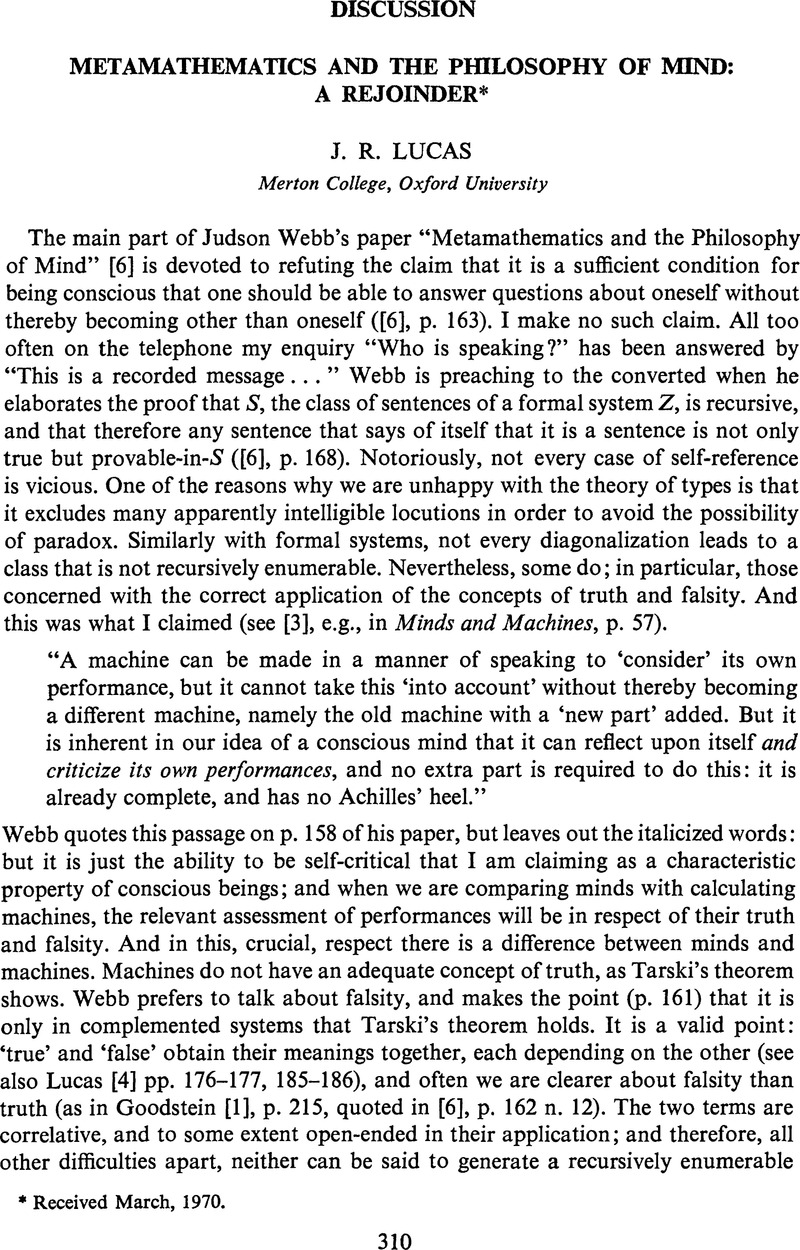Crossref Citations
This article has been cited by the following publications. This list is generated based on data provided by Crossref.
Webb, Judson C.
1983.
Language, Logic and Method.
Vol. 31,
Issue. ,
p.
309.
Hadley, Robert F.
1987.
Gödel, Lucas, and mechanical models of the mind.
Computational Intelligence,
Vol. 3,
Issue. 1,
p.
57.
Kennedy, Juliette
2022.
Gödel's Incompleteness Theorems.



